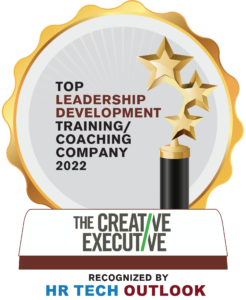
We tell Creative Executives all the time to think about what kind of legacy they want to leave.
Josh Jones-Dilworth says that when he got clear on that question, it changed everything.
In his case, it meant creating an agency designed to be around long after he’s gone.
Jones-Dilworth is the founder and CEO of the marketing communications agency that carries his name (aka JDI).
Founded in 2009, JDI is an“outsourced marketing department” for early-stage technology companies. A crew of about 15 handles naming and branding, market research, messaging and positioning, PR, investor relations, advertising, content development, design/build and more.
They’ve done all this for clients including Siri, Wolfram Alpha, SRI, Macmillan New Ventures, My ASICS, Aviate, Outbox, Bina, Base Health, Openstack, Infochimps, Klout, Beluga, and Austin City Limits.
We talked with Jones-Dilworth about taking the really, really long view, why creativity isn’t pretty sometimes and more.
When did you know that you wanted to break out on your own?
I made the decision that it was “go time” on the drive back from our wedding in Iowa. My wife and I both felt a wind at our back.
One of my VP’s always jokes that we’re a Montessori school of an agency. That’s true. I needed and I wanted a unique curriculum, and I’ve surrounded myself with people who are likewise feral, who best exist outside the usual system.
I knew from founding other companies that creating great new jobs from scratch motivated me more than anything. I never had a lot of access or opportunity growing up. Providing that for others keeps me going. I really, really wanted to create the agency that I always wanted to work at.
Does the company of today resemble what you thought it would be when you first started?
Yes, actually.
We’re a family business in so many ways, and that was the intention. We’re all actually friends, truly.
We’re also elite in terms of talent — there’s nothing better than working with the best, is there? We have a higher IQ than our peers; we encourage multi-disciplinary skill sets; we have legitimate subject matter expertise in a variety of industries and verticals; and we manage to earn a seat at the proverbial table that few marketers enjoy.
We’re able to be selective of both clients and colleagues. We don’t sweat payroll, and everyone makes a little bit more than what they need, but we don’t pursue money for money’s sake. We don’t have a growth mandate. We’re unlike what you’ve come to expect from the rest of marketing-kind. And we’re slowly leaving marketing a better place than we found it.
Describe a big transition in your career that required some adjustments to how you lead and manage your company, clients and/or yourself.
The biggest thing for me was realizing that I wanted JDI to be around for a long time. Like, after I die. Most agencies burn out and sell out.
If your timeframe is truly long-term, that’s changes everything about your decision-making. Some of it is exhilarating. Some of it is frightening. Your frame is everything.
Becoming the CEO that JDI requires has been a long line of realizations and decisions and bets large and small. But once we had the frame, things got a lot easier.
What are the key components of JDI culture? And how do you ensure they stay active in your company’s day-to-day workflow?
I think the key component is radical transparency, and everything that flows from that. We do open-book accounting — everyone knows the company’s financials. We use Quaker-style consensus decision-making for big-ticket items. We have a very open office, both literally and figuratively. We listen in on each other’s calls and critique them. We don’t lie about sick days, or anything else. We discuss wins and losses with equal aplomb.
In that kind of setting, gossip has to be a huge no-no. For us, it is fire-able. Communication is essential — clarity. Does everyone truly know what is meant? There can be no grudges — a short memory is valuable.
We don’t have titles, except for me and now our 2 VPs. And even I report to junior colleagues at the account level. Non-hierarchical thinking and behaving demands the best from everyone. There can be no weak links. If you’re power hungry, you’ll never make it here. We aspire to be colleagues in the best sense of that word.
I’m proud that we have insanely high retention rates (both longevity and attrition) in an industry where quite the opposite is generally the case.
How does the creative process unfold in your work?
One, it’s people sparking against each other. That’s never merely an issue of scheduling a meeting and entering a room. Sparking off of someone, or multiple people, requires great listening and great eye contact. It requires being able to form an opinion and being willing to defend it. It involves having done your homework. It involves being fully present.
Two, our creative process is, like everyone’s at a certain level, a loathsome kind of work, as Hunter S. Thompson said of writing. It is elbow grease and unglamorous slog. Young people especially see right past this fact. That’s unfortunate. Creation is a grind. God had to rest on the seventh day for a reason. And if it were easy or pretty it wouldn’t be so hard, or valuable. Discipline matters, stubbornness matters, detail-orientation matters, and intrinsic motivation matters. Creation is often ugly, as much as we want it to be beautiful. Creation is a beast. (Tweet+Share)
Development of your people is a top priority for you. Why? And what’s been most successful in mentoring and growing your people?
I have always loved consulting and I am a Consultant For Life™ because I love that our people are our product. That fact underwrites aggressive, continuous self-improvement and team improvement. In other companies,the product is made by the people,but it is not the people. You can hide. At JDI, you can’t hide. And we like it that way. We like that at $250/hour it hurts to waste our time, and that we have to always be $250/hour good. That’s a lot to live up to on both sides of the equation.
As for mentoring and growth, for us it’s been really just a question of time logged.
Think about your work experience overall. You have to have logged the hours in order to have the requisite confidence, see patterns, etc. You can’t skip directly to Go.
There are no shortcuts with mentoring, either, and I regret that I don’t make even more time for it. At a certain point, none of the strategies and techniques and technologies in the world matter. You’ve got to log the hours. If you don’t, your people will not grow and improve and bloom in the ways that they ought to.
My advice is to stop looking for hacks. Make room in your life to be a mentor, and you’ll do just fine.
Any other wisdom you’d like to add?
I’m a big fan of getting help. Coaching is just one kind of help. Some executives resist help out of pride or fear.
Trust me, you need all the help you can get. This job asks for more than you typically have to give.
It’s possible to get too much help—self-reliance will never go out of style. But nine out of 10 executives I know need more help, not less. Get some help. You need it. And it’s okay that you do.


